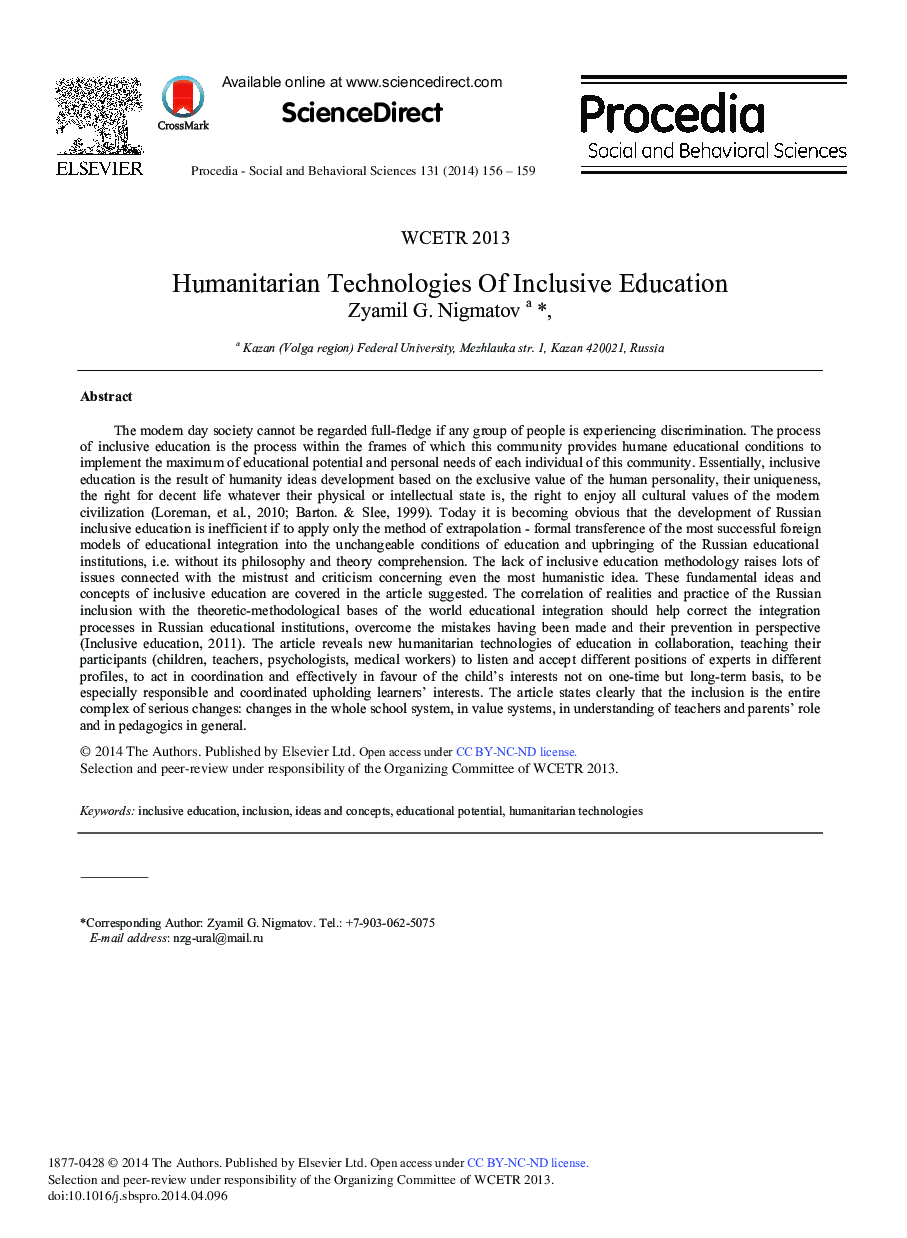| Article ID | Journal | Published Year | Pages | File Type |
|---|---|---|---|---|
| 1115061 | Procedia - Social and Behavioral Sciences | 2014 | 4 Pages |
The modern day society cannot be regarded full-fledge if any group of people is experiencing discrimination. The process of inclusive education is the process within the frames of which this community provides humane educational conditions to implement the maximum of educational potential and personal needs of each individual of this community. Essentially, inclusive education is the result of humanity ideas development based on the exclusive value of the human personality, their uniqueness, the right for decent life whatever their physical or intellectual state is, the right to enjoy all cultural values of the modern civilization (Loreman et al., 2010, ; Barton. & Slee, 1999). Today it is becoming obvious that the development of Russian inclusive education is inefficient if to apply only the method of extrapolation - formal transference of the most successful foreign models of educational integration into the unchangeable conditions of education and upbringing of the Russian educational institutions, i.e. without its philosophy and theory comprehension. The lack of inclusive education methodology raises lots of issues connected with the mistrust and criticism concerning even the most humanistic idea. These fundamental ideas and concepts of inclusive education are covered in the article suggested. The correlation of realities and practice of the Russian inclusion with the theoretic-methodological bases of the world educational integration should help correct the integration processes in Russian educational institutions, overcome the mistakes having been made and their prevention in perspective (Inclusive education, 2011). The article reveals new humanitarian technologies of education in collaboration, teaching their participants (children, teachers, psychologists, medical workers) to listen and accept different positions of experts in different profiles, to act in coordination and effectively in favour of the child's interests not on one-time but long-term basis, to be especially responsible and coordinated upholding learners’ interests. The article states clearly that the inclusion is the entire complex of serious changes: changes in the whole school system, in value systems, in understanding of teachers and parents’ role and in pedagogics in general.
